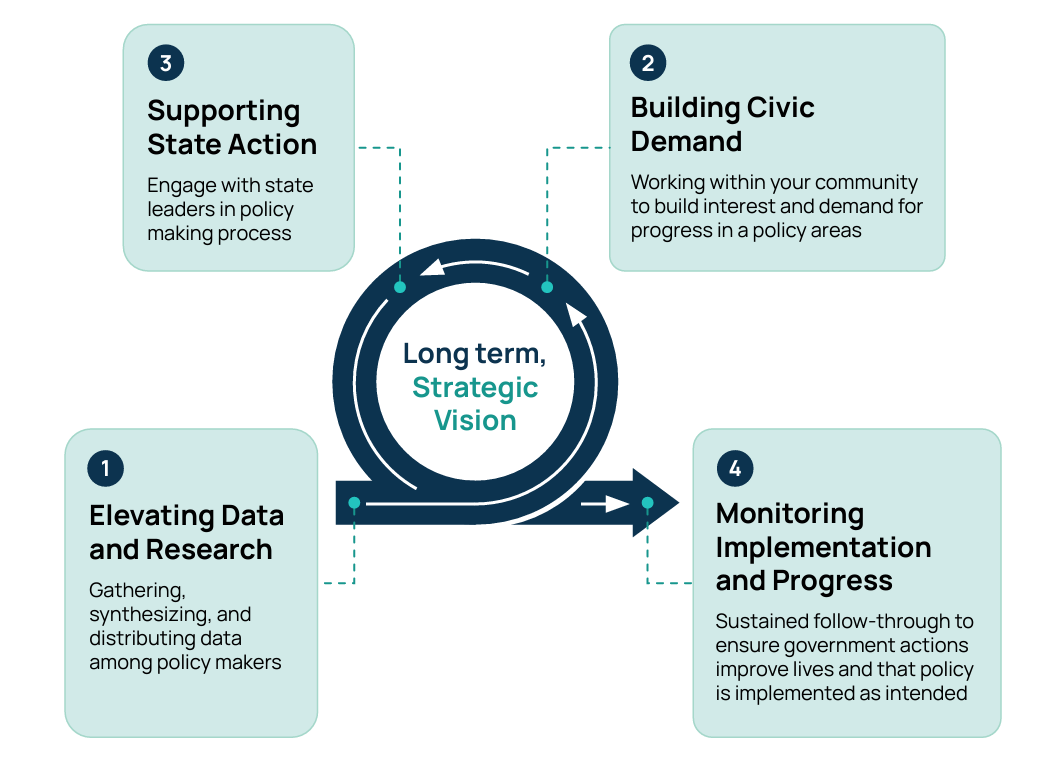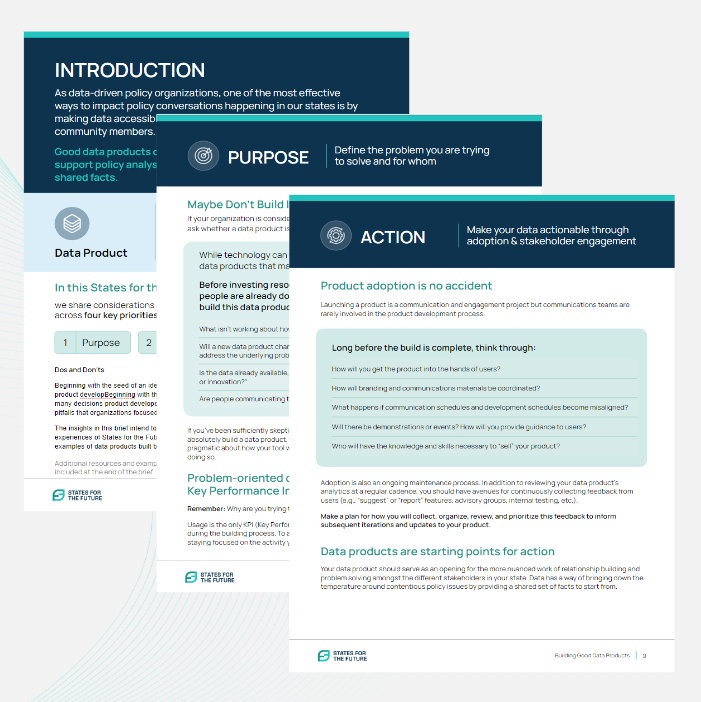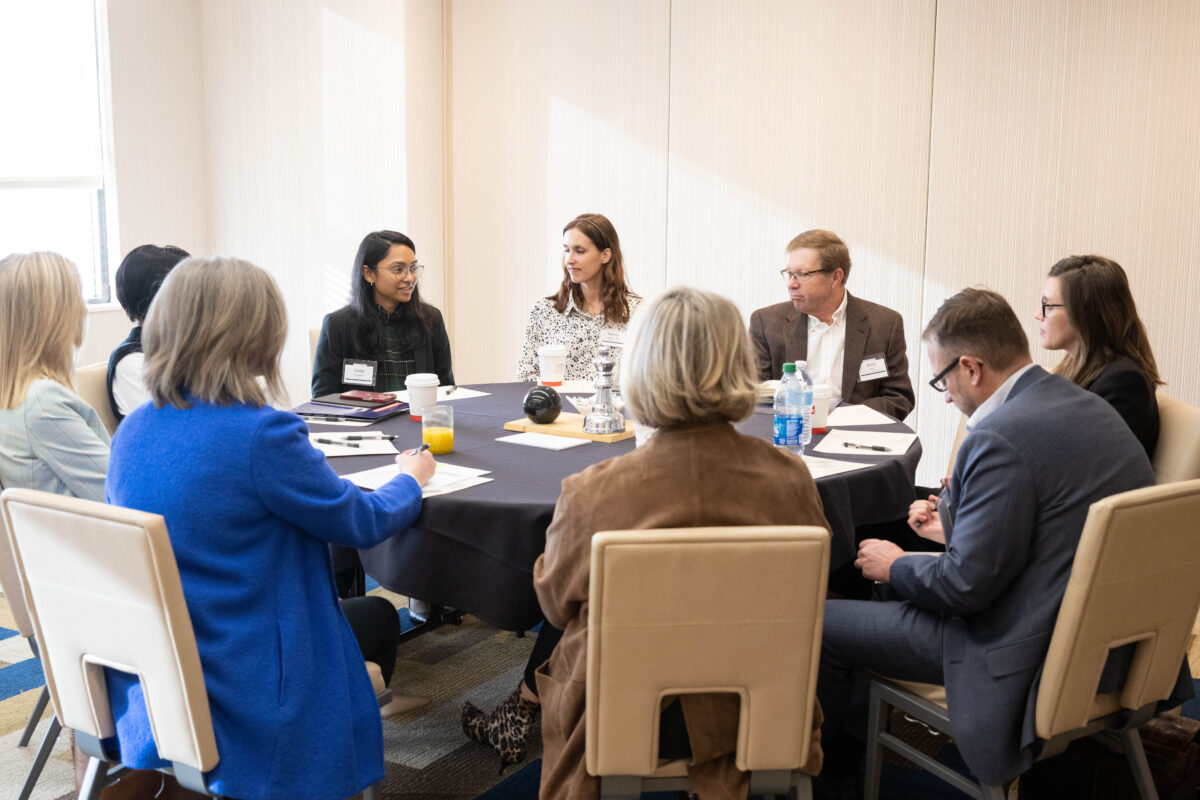States for the Future’s Impact Framework
Last week we held our annual virtual all network meeting and introduced our newly developed States for the Future Impact Framework. The SFF Impact Framework outlines the common levers for impact that States for the Future organizations are using – or are currently building – to advance policies that improve the lives of residents in their states.
Explore the SFF Impact Framework
The SFF Impact Framework was developed based on best practices seen across our network of non-profit, non-partisan, data-driven organizations. It identifies a long term vision and goals for a state as the foundation needed for effective policy work. Whether an organization is just getting started or has been working within their state for many years, the SFF Impact Framework also provides four key stages that organizations can work through to structure their impact effectively, along with resources for each stage, examples from SFF participating organizations, and guiding questions for getting started.
As States for the Future continues to build a data-driven policy ecosystem, we will use the SFF Impact Framework as an organizing structure for the resources and programming we offer, allowing us to connect the work we’re doing within our own states to peers working in other states or nationally.
Join our Data-Driven Policy Ecosystem
While States for the Future serves organizations working to advance policies at the state level, we also recognize the critical role of partner organizations like national advocacy groups, funders, data and service providers, etc.
- Members work directly to advance policy solutions in their states toward a shared long-term vision.
- Partners provide essential support, expertise, and resources to empower Members to act as catalysts for change.
As a Network made up of both members and partners, we can create an enabling ecosystem where participants can find “their people”, build on one another’s ideas, and work together without needing to do it all themselves.
Get Involved
If you’re excited by the potential of our new framework, here’s how you can stay connected and make the most of SFF’s offerings:
- Engage with SFF – Attend our webinars, provide feedback on the framework, and create an organization profile to better connect with our network.
- Join the Conversation – Whether you’re looking to join SFF, have questions about the model, or want to discuss how your organization can engage, reach out to us at info@statesforthefuture.org.



